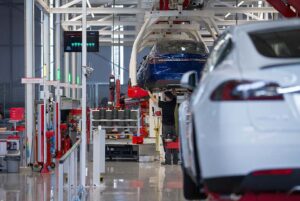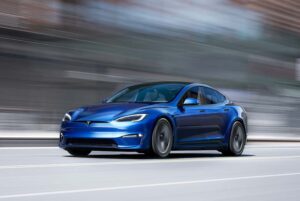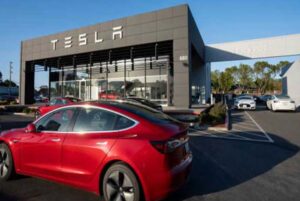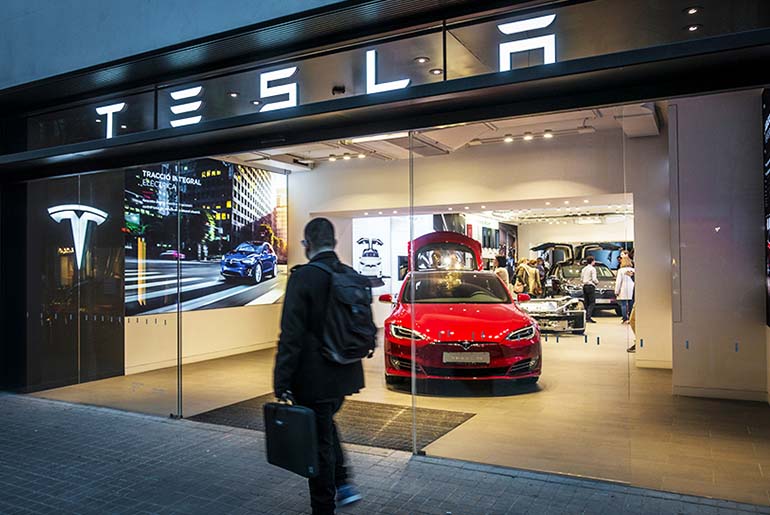As India strides towards a sustainable future, the anticipated Tesla’s Entry in India and its market has been a topic of much discussion and analysis. As one of the leading electric vehicle (EV) manufacturers globally, Tesla’s potential expansion into India marks an essential step in the country’s automotive and sustainable energy sectors.
Providing a detailed timeline and analysis of Tesla’s announcements and activities, let’s take a peek at Tesla’s Entry in India from 2015 to 2023.
Tesla’s Indian Saga: The Story So Far (2015-2023)
 Early Speculations and Interest (Pre-2015): Discussions about Tesla’s Entry in India started gaining traction in the early 2010s. India’s growing economy and its potential as a vast automotive market made it an attractive destination for EV manufacturers.
Early Speculations and Interest (Pre-2015): Discussions about Tesla’s Entry in India started gaining traction in the early 2010s. India’s growing economy and its potential as a vast automotive market made it an attractive destination for EV manufacturers.
Elon Musk’s Tweets (2015 onwards): Elon Musk, the CEO of Tesla, has been tweeting about the possibility of Tesla’s Entry in India and its market since around 2015. These tweets generated significant excitement and speculation among Indian consumers and the tech community.
Model 3 Announcement (2016): When Tesla announced the Model 3 in 2016, there was a surge in interest from India, with many customers from India reportedly placing reservations for the vehicle. This highlighted the market potential in India for Tesla.
Government’s Push for EVs (2017-2018): The Indian government has been increasingly vocal about its ambition to shift to electric vehicles to reduce carbon emissions and dependence on fossil fuels. Initiatives like the National Electric Mobility Mission Plan and Faster Adoption and Manufacturing of (Hybrid &) Electric Vehicles in India (FAME India) were significant steps in this direction.
Challenges and Market Considerations (2018): Despite the interest, there were practical challenges related to infrastructure, such as the lack of widespread EV charging stations, and policy challenges, including high import duties on electric cars. These factors made it difficult for Tesla’s Entry in India and its huge market immediately.
Elon Musk’s Comments on Challenges (Pre-2019): Elon Musk had also mentioned on several occasions the challenges posed by Indian regulations and the country’s import tariffs, which were among the highest in the world for automobiles.
2019: Initial Hints and Market Speculation
 Early 2019: Tesla CEO Elon Musk hinted at his interest in Tesla’s Entry in India. In response to a tweet asking about Tesla’s entry into India, Musk mentioned that he would love to be there this year or next.
Early 2019: Tesla CEO Elon Musk hinted at his interest in Tesla’s Entry in India. In response to a tweet asking about Tesla’s entry into India, Musk mentioned that he would love to be there this year or next.
Late 2019: Reports began circulating about Tesla’s negotiations with the Indian government. However, there were no official announcements, and the discussions seemed to be in the early stages.
2020: Growing Interest and Challenges
Mid 2020: Amidst the global pandemic, Elon Musk reiterated his desire to enter the Indian market. However, he also expressed concerns over the country’s import duties and the cost of setting up a manufacturing unit.
Late 2020: Indian government officials publicly invited Tesla to establish a production facility in the country, promising favorable policies and incentives.
2021: Concrete Steps and Official Announcements
 January 2021: Tesla registered its Indian subsidiary, Tesla India Motors and Energy Private Ltd, in Bengaluru, Karnataka. This move was seen as the first significant step towards Tesla’s operations in India.
January 2021: Tesla registered its Indian subsidiary, Tesla India Motors and Energy Private Ltd, in Bengaluru, Karnataka. This move was seen as the first significant step towards Tesla’s operations in India.
February 2021: Reports surfaced about Tesla scouting for showroom space in major cities like Mumbai, Delhi, and Bengaluru. The focus was on high-end retail locations for flagship showrooms.
Mid 2021: Tesla started hiring for key positions in India, including a country manager, indicating a more structured approach towards entering the market.
August 2021: Elon Musk tweeted about challenges with the Indian government, particularly regarding the high import duties on EVs, which are among the highest in the world. He emphasized the need for temporary relief for EVs to support Tesla’s Entry in India and its market.
2022: Regulatory Hurdles and Strategic Partnerships
Early 2022: The Indian government showed willingness to consider lowering import duties, but expected Tesla to commit to manufacturing locally. Thus, further negotiations continued without a clear resolution.
Mid 2022: Rumors emerged about Tesla exploring partnerships with Indian automakers for local production, but no official announcements were made.
Late 2022: Tesla’s global supply chain issues and focus on existing markets seemed to slow down its India entry plans. No major developments were reported in the latter half of the year.
2023: Renewed Focus and Future Prospects
Early 2023: Tesla renewed its interest in the Indian market, likely due to the improving global supply chain situation and the Indian government’s increased focus on EVs in its budget and policies.
Mid 2023: Reports of advanced talks between Tesla and the Indian government surfaced, with discussions centering on manufacturing incentives under India’s Production Linked Incentive (PLI) scheme for EVs.
September 2023: Tesla announced plans for a pilot project to import a limited number of vehicles for testing and understanding customer response. This move was seen as a precursor to a larger-scale Tesla’s Entry in India.
Analysis and Future Outlook
Tesla’s journey in India from 2015 to 2023 reflects a cautious yet strategic approach. The Indian EV market, though nascent, has enormous potential given the country’s focus on reducing carbon emissions and promoting sustainable transportation. Tesla’s Entry in India could be a game-changer, not only for the company but also for the Indian automotive sector.
However, challenges such as high import duties, the need for local manufacturing, and the initial setup costs have been significant hurdles. Tesla’s negotiation with the Indian government and its approach to these challenges suggest a long-term commitment to the market, albeit with a cautious and calculated strategy.
Looking ahead, Tesla’s potential manufacturing and sales in India could catalyze the EV ecosystem, including battery manufacturing, charging infrastructure, and renewable energy integration. The success of Tesla’s Entry in India could also inspire other global EV manufacturers to explore the Indian market, further accelerating the country’s transition to sustainable mobility.


